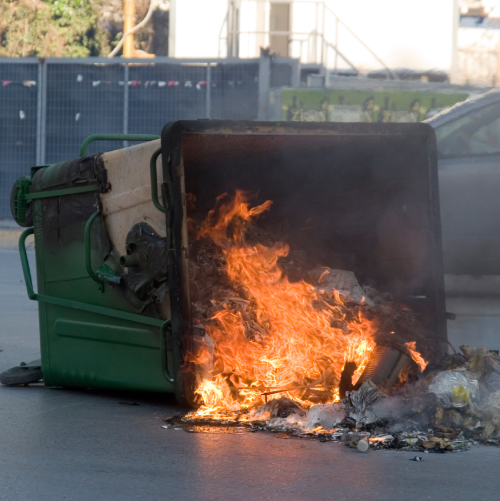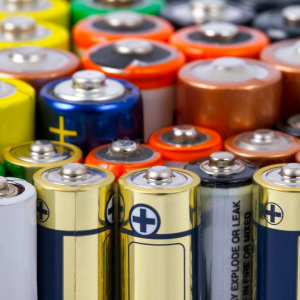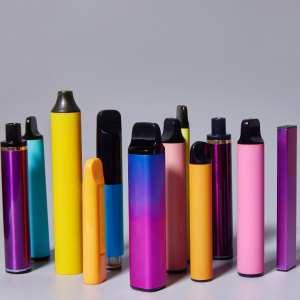Lets work together



Suite 3A, Chapel Allerton House, 114 Harrogate Road, Leeds, LS7 4NY
ukinfo@integrated-skills.com
+44 (0) 3300 888 670

In the UK, refuse collection vehicle (RCV) fires caused by improperly discarded batteries have shot up by 71% since 2022. Besides the obvious danger these fires pose to refuse workers, first responders and members of the public, the cost of replacing damaged vehicles can be astronomical.
This entirely avoidable issue comes down to a lack of care, or lack of understanding from the public. Awareness campaigns, the Government’s ban on vapes set for 2025 and a boost in kerbside battery collection could bring the figures down.
Here we’ll be discussing the cause of the fires and what’s being done to help eliminate this dangerous and wasteful issue.
The Scale of the Issue
Material Focus have been researching the issue of battery-induced fires throughout the UK waste management system. The study ran from May 2023 to May 2024, some key findings are below:
In Cambridgeshire alone and in only the first 5 months of 2024, seven bin lorry fires were reported by Greater Cambridge Shared Waste (a partnership between Cambridge city council and South Cambridge district council), all reportedly due to lithium batteries. One of the seven affected the bin collection service for 6000 homes as 4 tonnes of waste went up in smoke.
Mark Andrews, (Waste and Recycling Fires Lead for the National Fire Chiefs Council) sums up the issue:
“Fires involving waste have always been challenging but lithium-ion batteries add significantly to this by creating unknown and unpredictable risks. These fires can be explosive and spread rapidly with the risk of reignition and toxic gasses a risk to firefighters. These incidents also tie up large numbers of finite fire service resources and firefighters to fully control and extinguish the fire creating further risks to the community.”
How Do Discarded Batteries Cause Fires?
Lithium-ion batteries, often hidden inside household electricals, can be crushed and damaged when they are mixed with general waste and collected in an RCV. Once damaged, the batteries can go into “thermal runaway” where they ignite the highly combustible rubbish around them, and even re-ignite hours after a fire is under control.
Lithium-ion battery fires can cause explosions and lead to chemical exposure. As they burn, they create their own source of oxygen- leading to reignition and additional smoke and fumes. Communities can be affected for days after a fire, with acrid smoke entering neighbouring homes.
Fires can affect RCVs and waste centres, putting multiple lives and property at risk.

Which Items Contain Batteries?
Many (although, not all) people will be aware of the need to recycle batteries separately, but quite often batteries are hidden. Less obvious dangers to the waste management system include:
Essentially, all electrical items should be recycled carefully; to avoid the risk of fire and to enable waste management centres to make sure of the wiring and chips they may contain.

The Cost of Battery Fires
Battery fires pose a risk to life and property, as well as creating air pollution and draining the resources of local emergency responders. Head of Greater Cambridge Shared Waste, Bode Easan spoke about the dangers faced by their crews and the public due to their recent run of fires:
“Whenever a fire breaks out in the back of one of our trucks, our crews are put in danger as they must rapidly find a safe place to unload the recycling or waste to stop the fire engulfing the lorry. Any member of the public around the vehicle is of course also put at risk. “
Fires caused by batteries can burn for days as the batteries regularly reignite, causing issues with air pollution. Professor Frank Kelly from the Faculty of Medicine, School of Public Health at Imperial College London analysed fires at waste sites in Herne Hill and Brentford
He found that “they contributed to the local pollution burden, with the fire in Herne Hill clearly leading to exceedances in the WHO health based guideline for PM2.5.” Professor Kelly went on to explain that this level of pollution would affect thousands of residents who should be advised to keep windows closed, stay in wherever possible and to wear a mask if they needed to leave the house. The Herne Hill fire Professor Frank Kelly is referring to burned for 4 days with 15 fire engines and around 100 firefighters attending the scene.
Chief Claims Officer at Zurich, James Nicholson, has outline the financial impact of lithium battery fires , as well as the increasing regularity of claims: “Each year we’re seeing more and more, whether that’s in bin lorries or waste centres. Not only can they cause a considerable amount of damage – Zurich UK has seen some cases cost in the region of up to £20 million – but they can also cause a lot of upheaval while damage is repaired.”
Why Are Vapes Being Blamed for the Increase?
Vapes have surged in popularity in recent years and have been attributed to many RCV fires. It’s thought that users are either unaware that they contain a battery or don’t know that disposing of batteries with general waste is dangerous.
Zurich Municipal have researched the issue for the UK and found that:
Zurich also requested data via a freedom of information request which showed a 62% increase in RCV fires in the last 2 years. The same data also showed that house fires caused by vapes have increased by 108% in the same period.
Following their research, the insurer has called for the government to “launch a fully funded kerbside collection service for electrical waste and a national campaign to raise awareness of how to safely dispose of vapes”.
What is Being Done to Address the Issues?
In some areas, councils offer a battery collection service alongside the usual refuse pick-ups. This involves residents placing any batteries or battery-containing items into a plastic bag, tied shut and left on top of their wheelie bin. Refuse workers then collect the bags and keep them separate from general waste, ensuring they can be dealt with safely.
There are also public collection points in places like large supermarkets, some chemists and corner shop chains and, of course, at recycling centres. But the real issue seems to be a lack of awareness.
In January of 2024, all 4 UK Governments announced their commitment to banning disposable, single use vapes. England’s draft legislation is set to come into law in April 2025. The UK Vaping Industry Association (UKVIA) have criticised the Government for simply banning the product instead of investing in kerbside collections. They argue that rechargeable and refillable vapes will continue to be an issue if kerbside collections aren’t put in place.
In May of 2024, the National Fire Chiefs Council (NFCC) and Recycle Your Electricals came together to raise awareness of the importance of electricals and battery recycling. Scott Butler, Executive Director of Recycle Your Electricals, summarises the issue:
“With more and more products containing lithium-ion batteries, and battery fires on the rise it’s vital that we stop these fires and reduce the air pollution impact that they have on our local communities and the dangers they present to fire fighters and waste officers.
We are also throwing away some of the most precious materials on the planet which are vital to our economy.
We are calling on everyone to make sure that they never bin and always recycle their electricals and their batteries. Just search recycle your electricals to find your nearest drop off point.”
RYE’s advice for recycling your batteries or electrical items is to:
Would you like to know more about Battling Battery Fires in UK Bin Lorries? Fill in your details below and let us know how we can help.
Website Designed & Built by we are CODA